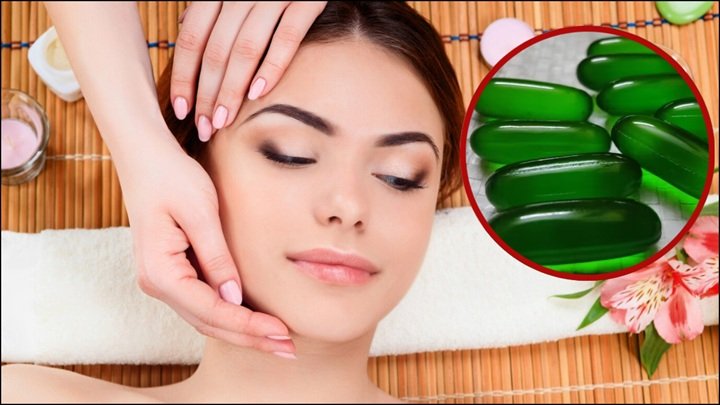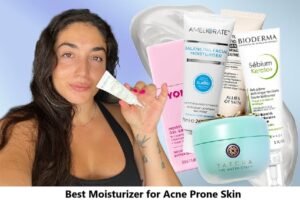
Can We Use Vitamin E Capsule on Face Daily?
Vitamin E has gained immense popularity as a skincare ingredient, and with good reason. Known for its antioxidant properties, Vitamin E can benefit the skin in multiple ways, making it a go-to remedy for various skin concerns. As a result, many people wonder whether they Can We Use Vitamin E Capsule on Face Daily. In this comprehensive article, we will explore the benefits, risks, and best practices when incorporating Vitamin E capsules into your daily skincare routine.
What is Vitamin E?
Vitamin E is a group of eight fat-soluble compounds, but the most commonly used form in skincare is alpha-tocopherol. It has potent antioxidant properties that help protect the skin from damage caused by free radicals, environmental pollutants, and UV radiation. Because of its ability to improve the skin’s health and appearance, Vitamin E is frequently included in skincare products like creams, serums, and oils.
The Benefits of Using Vitamin E Capsules on Your Face
1. Powerful Antioxidant Properties
One of the primary benefits of Vitamin E is its antioxidant effect. Antioxidants help neutralize free radicals that cause skin damage and contribute to premature aging. By using Vitamin E on your face, you can protect your skin from oxidative stress and reduce signs of aging, such as wrinkles, fine lines, and dullness.
2. Moisturizing and Hydrating
Vitamin E is an excellent moisturizer because it is fat-soluble, meaning it can penetrate deeply into the skin to provide long-lasting hydration. People with dry or flaky skin can benefit significantly from the regular use of Vitamin E. It helps lock in moisture and prevents water loss, keeping your skin soft and supple.
3. Reduces Inflammation and Soothes Skin
Vitamin E has anti-inflammatory properties that can help calm irritated or inflamed skin. If you suffer from skin conditions like eczema, psoriasis, or dermatitis, applying Vitamin E can help reduce redness and swelling, providing relief.
4. Promotes Skin Healing and Regeneration
Vitamin E is known for its ability to accelerate wound healing and promote the regeneration of skin cells. For individuals with acne scars, stretch marks, or minor cuts, Vitamin E can help speed up the healing process and improve the overall appearance of your skin.
5. Lightens Scars and Hyperpigmentation
One of the most common uses of Vitamin E in skincare is to lighten scars and dark spots. Its antioxidant properties help repair damaged skin cells, making scars and hyperpigmentation less visible over time. Regular application can gradually fade acne scars and sunspots.
6. Prevents and Reduces Wrinkles
Due to its anti-aging properties, Vitamin E can help prevent the formation of wrinkles and reduce existing fine lines. It works by improving skin elasticity and collagen production, resulting in a more youthful and plump complexion.
Can You Use Vitamin E Capsules on Your Face Daily?
While Vitamin E offers a variety of benefits, using it on your face every day may not be suitable for everyone. Below, we discuss the pros and cons of daily Vitamin E application and factors you should consider before incorporating it into your daily skincare routine.
Pros of Daily Use
- Enhanced Moisturization: If you have extremely dry skin, daily use of Vitamin E can help maintain optimal hydration levels and prevent flaky or cracked skin.
- Protection Against Free Radicals: By using Vitamin E daily, you provide your skin with continuous protection against oxidative damage caused by pollution, UV rays, and other environmental factors.
- Improved Skin Texture: Regular application can result in smoother, softer skin with fewer visible scars, fine lines, and hyperpigmentation.
Cons of Daily Use
- Risk of Clogged Pores: While Vitamin E is deeply moisturizing, it is also thick and oily, making it unsuitable for people with oily or acne-prone skin. Daily use can clog pores and lead to breakouts and blackheads.
- Potential Allergic Reactions: Some individuals may be allergic to Vitamin E or experience irritation, especially when used in high concentrations. Patch testing is crucial to avoid adverse reactions.
- Greasy Residue: Since Vitamin E is an oil-based ingredient, it may leave a greasy residue on the skin, which can be uncomfortable, especially if you have combination skin.
Skin Types and Daily Vitamin E Use
The decision to use Vitamin E capsules on your face daily depends largely on your skin type:
- Dry Skin: Individuals with dry skin can benefit the most from daily use of Vitamin E, as it helps restore lost moisture and protects the skin from environmental aggressors.
- Oily or Acne-Prone Skin: People with oily or acne-prone skin should avoid using Vitamin E on a daily basis, as it may clog pores and exacerbate breakouts.
- Sensitive Skin: Those with sensitive skin should exercise caution and introduce Vitamin E slowly into their routine. Start by using it 2-3 times per week to avoid irritation.
- Combination Skin: For combination skin, spot-treating with Vitamin E on dry patches or scars may be more effective than applying it to the entire face daily.
How to Use Vitamin E Capsules on Your Face
If you’ve decided to use Vitamin E capsules as part of your skincare routine, follow these steps for safe and effective application:
Step-by-Step Guide
- Cleanse Your Face: Start by washing your face with a gentle cleanser to remove dirt, oil, and makeup. Pat your face dry with a clean towel.
- Extract the Oil: Take a Vitamin E capsule and use a clean needle or pin to pierce the capsule. Squeeze out the oil onto your fingertips.
- Apply to Problem Areas: Gently massage the oil onto your face, focusing on areas where you have scars, dark spots, or dryness. You can also apply it around the eyes to target fine lines.
- Leave it Overnight: For best results, leave the Vitamin E oil on your skin overnight to allow maximum absorption. Rinse your face with lukewarm water in the morning.
- Moisturize (Optional): If your skin still feels dry after applying Vitamin E, follow up with a lightweight moisturizer to lock in hydration.
How Often Should You Use Vitamin E?
- For dry skin: Daily use can be beneficial, but monitor your skin’s reaction. If it feels too greasy, reduce the frequency to 3-4 times a week.
- For oily or acne-prone skin: Limit use to 1-2 times per week or apply only to specific problem areas, such as scars or dry patches.
Vitamin E and Other Skincare Ingredients: Compatibility and Risks
Vitamin E works well with several other skincare ingredients, but there are also some combinations you should avoid. Here’s a breakdown:
Best Ingredients to Use with Vitamin E
- Vitamin C: This is a powerful combination, as Vitamin C boosts collagen production and brightens the skin, while Vitamin E protects against oxidative stress. Together, they can improve skin tone and reduce wrinkles.
- Hyaluronic Acid: For deep hydration, combine Vitamin E with hyaluronic acid. This will help retain moisture in your skin and prevent dryness.
- Niacinamide: This ingredient helps strengthen the skin barrier and can reduce the greasiness associated with Vitamin E, making it a good option for those with combination or oily skin.
Ingredients to Avoid with Vitamin E
- Retinol: While both retinol and Vitamin E are beneficial for anti-aging, using them together can lead to irritation, especially for sensitive skin.
- Exfoliating Acids (AHAs/BHAs): These acids can increase your skin’s sensitivity and make it more prone to irritation when used with Vitamin E.
Possible Side Effects of Using Vitamin E on Your Face
While Vitamin E is generally considered safe, some people may experience side effects, especially if used in large amounts or too frequently. Potential side effects include:
- Clogged Pores: As mentioned earlier, Vitamin E is thick and can clog pores, leading to blackheads or breakouts.
- Skin Irritation: In some cases, Vitamin E may cause redness, itching, or irritation, particularly for individuals with sensitive skin.
- Allergic Reactions: If you’re allergic to Vitamin E, you may experience swelling, hives, or a rash. Always perform a patch test before using it on your face.
Benefits of Vitamin E for Different Skin Types
| Skin Type | Benefit of Vitamin E | Recommended Usage |
|---|---|---|
| Dry Skin | Deep moisturization, reduces flakiness | Daily or every other day |
| Oily Skin | Helps lighten acne scars | 1-2 times per week |
| Combination Skin | Targets dry patches and scars | Spot treatment or 3 times/week |
| Sensitive Skin | Reduces inflammation, soothes redness | 2-3 times per week |
Best Skincare Ingredients to Pair with Vitamin E
| Ingredient | Benefit | Usage with Vitamin E |
|---|---|---|
| Vitamin C | Boosts collagen, brightens skin | Use together in the morning |
| Hyaluronic Acid | Deep hydration, plumps skin | Use at night with Vitamin E |
| Niacinamide | Strengthens skin barrier, reduces oil | Use in a serum with Vitamin E |
Conclusion: Is It Safe to Use Vitamin E Capsules on Your Face Daily?
In conclusion, Vitamin E can offer numerous benefits when used on your face, including improved skin hydration, reduced scarring, and protection from environmental damage. However, the suitability of daily use depends on your skin type. While individuals with dry skin may benefit from daily application, those with oily or acne-prone skin should limit their use to avoid clogging pores.
To achieve the best results, it is recommended to incorporate Vitamin E into your skincare routine gradually. Monitor how your skin reacts and adjust the frequency of application accordingly. By using Vitamin E responsibly, you can enjoy its many skin-enhancing benefits without risking potential side effects.
Read About, Dr Scholl’s Skin Tag Remover: The Complete Guide.



